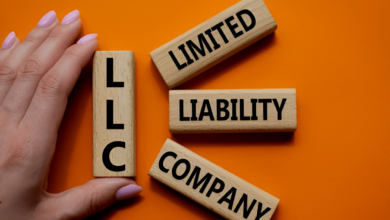Personal Injury Lawsuits in Florida: How Much Can You Sue For?
Personal injury lawsuits in Florida can recover thousands to millions. Learn damage caps, compensation factors & how much you can sue for

Personal injury Lawsuits in Florida provide a legal pathway for victims to seek compensation when they’ve been harmed due to another party’s negligence or intentional actions. The amount you can recover depends on various factors, including the severity of your injuries, medical expenses, lost wages, and the impact on your quality of life. Florida operates under a pure comparative negligence system, meaning your compensation may be reduced if you share some blame for the accident. Additionally, certain types of cases, such as medical malpractice claims, have damage caps that limit how much you can recover. Understanding these legal principles is essential for anyone considering filing a personal injury Lawsuits in Florida claim in the Sunshine State.
Whether you’ve been injured in a car accident, slip and fall incident, or medical procedure gone wrong, knowing your rights can make a significant difference in the outcome of your case. will explore the key factors that determine compensation in personal injury Lawsuits in Florida, the types of damages available, and the legal limitations that could affect your claim. By the end, you’ll have a clearer understanding of how much you might be able to sue for and what steps to take to protect your rights.
Personal Injury Lawsuits in Florida
Factors That Determine How Much You Can Sue For in Florida
The amount you can recover in a personal injury lawsuit depends on several factors, including the nature and extent of your injuries, the circumstances of the accident, and the insurance policies involved. Below are the primary considerations that influence settlement amounts and jury verdicts in Florida.
Severity of Injuries
The more severe your injuries, the higher your potential compensation. Catastrophic injuries such as spinal cord damage, traumatic brain injuries, or permanent disabilities typically result in larger settlements due to long-term medical care, rehabilitation, and loss of earning capacity. Minor injuries, such as sprains or minor fractures, generally lead to lower payouts since they require less medical intervention.
Medical Expenses
All reasonable medical costs related to the injury can be claimed, including hospital bills, surgeries, medications, physical therapy, and future medical treatments. Keeping detailed records of all medical expenses is essential for proving the financial impact of your injuries.
Lost Wages and Loss of Earning Capacity
If your injury prevents you from working, you can seek compensation for lost income. In cases where the injury causes long-term or permanent disability, you may also claim loss of future earning capacity, which considers how much income you would have earned had the injury not occurred.
Pain and Suffering
Non-economic damages, such as physical pain, emotional distress, and reduced quality of life, are also compensable. Lawsuits in Florida does not impose a strict cap on pain and suffering in most personal injury cases, except for medical malpractice claims, where non-economic damages are limited to 500,000or1 million, depending on the circumstances.
Insurance Policy Limits
The at-fault party’s insurance coverage can limit the amount you recover. For instance, Florida requires drivers to carry a minimum of 10,000 in Personal Injury Protection (PIP) and 10,000 in Property Damage Liability (PDL), but these amounts are often insufficient for serious injuries. If damages exceed policy limits, you may need to pursue a lawsuit against the at-fault party personally.
Property Damage
If your injury resulted from a car accident or another incident involving property damage (e.g., a defective product), you can seek reimbursement for repair or replacement costs.
Comparative Negligence Rule
Florida follows a pure comparative negligence rule, meaning if you are partially at fault for the accident, your compensation will be reduced by your percentage of fault. For example, if you are found 30% responsible for a car accident, your total damages of 100,000 would be reduced to70,000.
Punitive Damages
In rare cases involving gross negligence or intentional harm, courts may award punitive damages to punish the defendant and deter similar conduct. Florida law caps punitive damages at three times the amount of compensatory damages or $500,000, whichever is greater, with some exceptions.
Types of Damages Available Personal Injury Lawsuits in Florida
Economic Damages (Tangible Losses)
These include quantifiable financial losses such as: Medical bills (past and future). Lost wages and diminished earning capacity. Rehabilitation costs. Property damage
Non-Economic Damages (Intangible Losses)
These compensate for subjective harm, including: Pain and suffering. Emotional distress. Loss of enjoyment of life. Disfigurement or scarring
Punitive Damages
Awarded in extreme cases of misconduct, punitive damages are not tied to actual losses but are meant to punish the defendant.
Damage Caps in Florida Personal Injury Cases
While Florida does not impose caps on most personal injury damages, medical malpractice cases have specific limits is non-economic damages (e.g., pain and suffering) are capped at 500,000 against practitioners and 1 million against non-practitioners (e.g., hospitals). Wrongful death non-economic damages in medical malpractice cases are capped at $500,000 per claimant, with some exceptions. These caps have faced legal challenges, but as of now, they remain in effect.
How to Maximize Your Personal Injury Claim in Florida
To ensure you receive the highest possible compensation to Seek Immediate Medical Attention – Delayed treatment can weaken your claim. Document Everything – Keep medical records, accident reports, and witness statements. Avoid Early Settlement Offers Insurance companies may lowball you before the full extent of injuries is known. Hire an Experienced Personal Injury Lawyer An attorney can negotiate with insurers and build a strong case.
Read More: The Ultimate Guide to the Top Corporate Lawyers in the Country
Conclusion
Personal injury Lawsuits in Florida can provide crucial financial recovery for victims, but the amount you can sue for depends on numerous factors. From medical expenses and lost wages to pain and suffering and shared fault under Florida’s comparative negligence laws, each case requires careful evaluation. While most personal injury claims have no set damage limits, medical malpractice cases are subject to statutory caps that may restrict your compensation. Working with an experienced personal injury attorney ensures you properly value your claim and navigate Lawsuits in Florida complex legal landscape.
Ultimately, the success of personal injury Lawsuits in Florida hinges on strong evidence, thorough documentation, and skilled legal representation. Whether negotiating with insurance companies or presenting your case in court, understanding your rights and the factors that influence compensation puts you in the best position to recover what you deserve. If you’ve been injured due to someone else’s negligence, taking prompt action and consulting a qualified lawyer can make all the difference in securing fair compensation for your losses.
FAQs
Is there a limit to how much I can sue for Lawsuits in Florida personal injury case?
Most personal injury cases have no strict caps, except medical malpractice lawsuits, where non-economic damages are limited.
How does Florida’s comparative negligence rule affect my claim?
Your compensation is reduced by your percentage of fault, but you can still recover damages even if you are 99% at fault.
What is the average settlement for a personal injury case Lawsuits in Florida?
Settlements vary widely, from a few thousand dollars for minor injuries to millions for catastrophic harm.
Can I sue for pain and suffering Lawsuits in Florida?
Yes, pain and suffering are compensable, but medical malpractice cases have damage caps.
How long do I have to file a personal injury Lawsuits in Florida?
The statute of limitations is generally four years for most personal injury cases and two years for medical malpractice.











